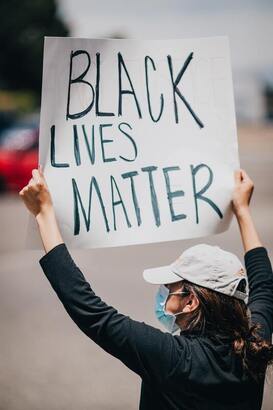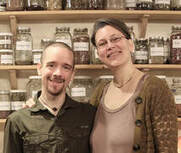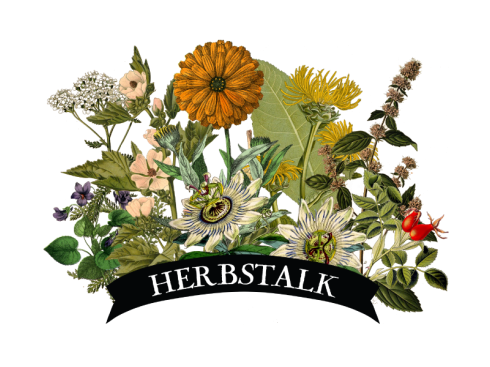 Photo by Vince Fleming on Unsplash
Photo by Vince Fleming on Unsplash There is so much upheaval right now, but also so much hope. When I look around, I see that we can change what's needed to be changed for a long time now. I see a world coming together to say we won't tolerate this anymore. I see people talking about how things could be different -- radically different in ways that are built on respect and compassion.
There is a specific role for herbalism in this shift.
Herbalism is about community health. It's called "the people's medicine" - not because it's simple, but because it's accessible.
By "accessible" I mean both that herbs are available to anyone, and that many of them can be had very inexpensively, or even grown at home. But also that anyone can learn it. You can start to be helpful literally as soon as you've learned your first herb. Yes, there's a lot to learn, and yes, it takes time and experience. But on the other hand, if you know that Chamomile can help calm the nervous system, relax cramping, and relax muscle tension, and if you can get some Chamomile tea from your local grocery store, you are already able to help people around you to relieve discomfort.
Or in other words, even when you're just beginning, as long as you stay in the scope of what you've learned, you can already start to be helpful. You don't have to know everything before you can be of service.
Herbalism is about community health and we particularly recognize that Black Americans, People of Color, Native Americans, and those living in marginalized communities frequently do not have access to quality, compassionate, and just health care. We recognize that incarcerated individuals and people experiencing homelessness do not have access to quality, compassionate, and just healthcare.
These are places we can be of service.
Whether you're just beginning your journey as an herbalist, or whether you have lots of experience, here are some ways you can use your skills to serve others:
- start a community free clinic
- provide emotional support blends to help people deal with trauma, to help people relax after upsetting experiences, to help people build resilience to keep pushing for change
- start a community health collective in your church or neighborhood, providing care and comfort where you can, as well as helping to resource and distribute food and supplies for those in need
- provide education in your community to empower more people to build health and resilience
- make tea for people who are hurting and share it with them, and listen to what they have to say
Even if you only know one herb and how it can help with one thing -- that's one thing you can do to serve the people around you.
Here are some free resources that you might find helpful along the way:
- How to start a free clinic: this is how we've done it and it might give you ideas about how you could do it.
- Herbal support for trauma recovery and building resilience: how we can serve the needs of our communities and specifically the Black Community in this time.
- Here are some more emotional support resources for anxiety and heart support.
- As well as an episode with ideas about building a culture of support that can be applied at the community level.
- Here is an interview with Nicole Rose about health justice for incarcerated people.
- How to grow your own herbs is a starter guide to growing. The more we grow, the more we have to share!
- We also want to remind you about our scholarship programs for Black Americans, Native Peoples, and incarcerated people. You can find them at the bottom of this page: commonwealthherbs.com/about
- Finally, check out our Mutual Aid resource page that contains free materials that will help you do the work of fighting racism and strengthening community where you live.
Imagine the ways in which our communities can be more compassionate, more just, more equal. Imagine the ways our communities can be *fully* compassionate, *fully* just, and *fully* equal.
If we can imagine it, and if we work in service to that goal, we can create it.




 RSS Feed
RSS Feed